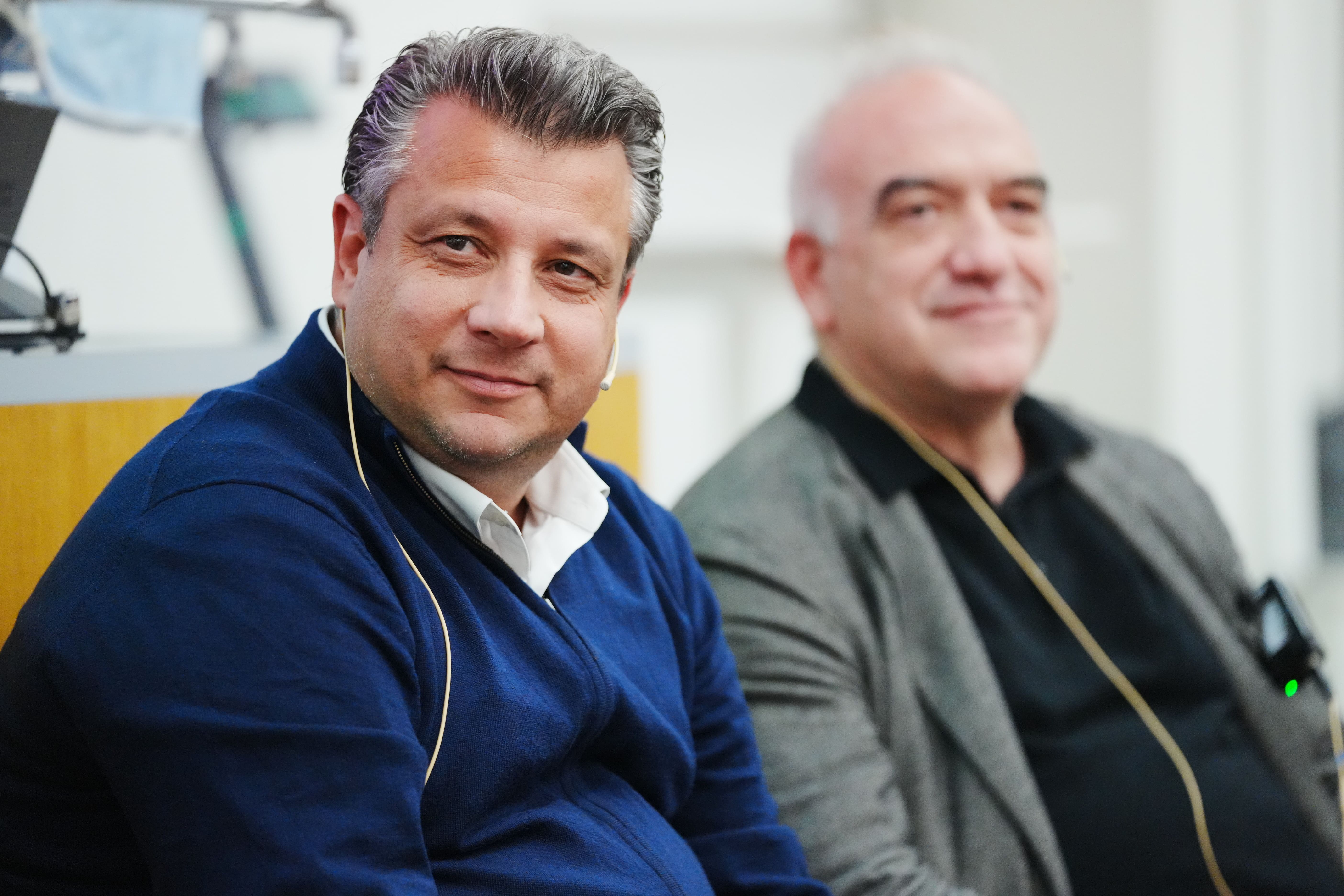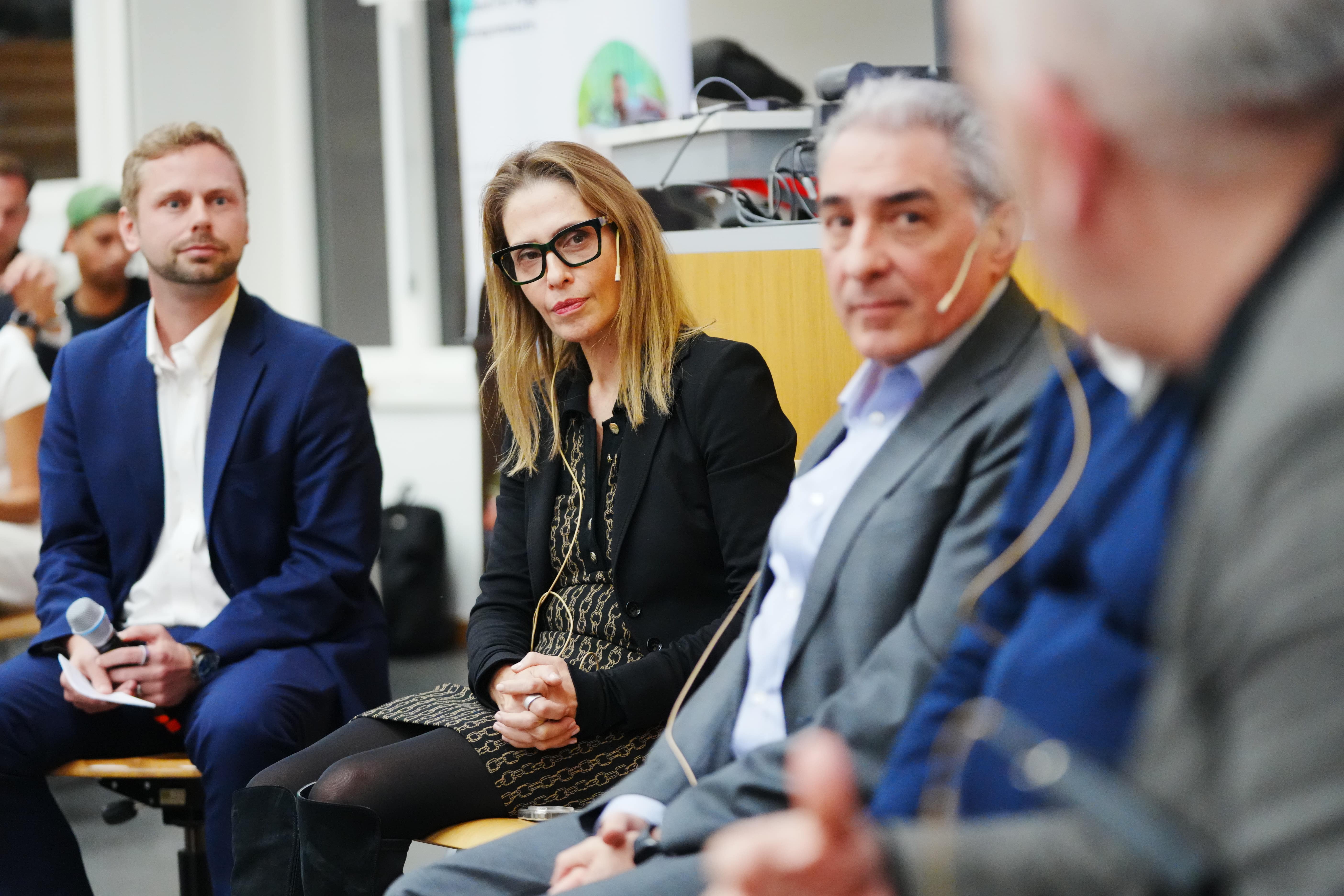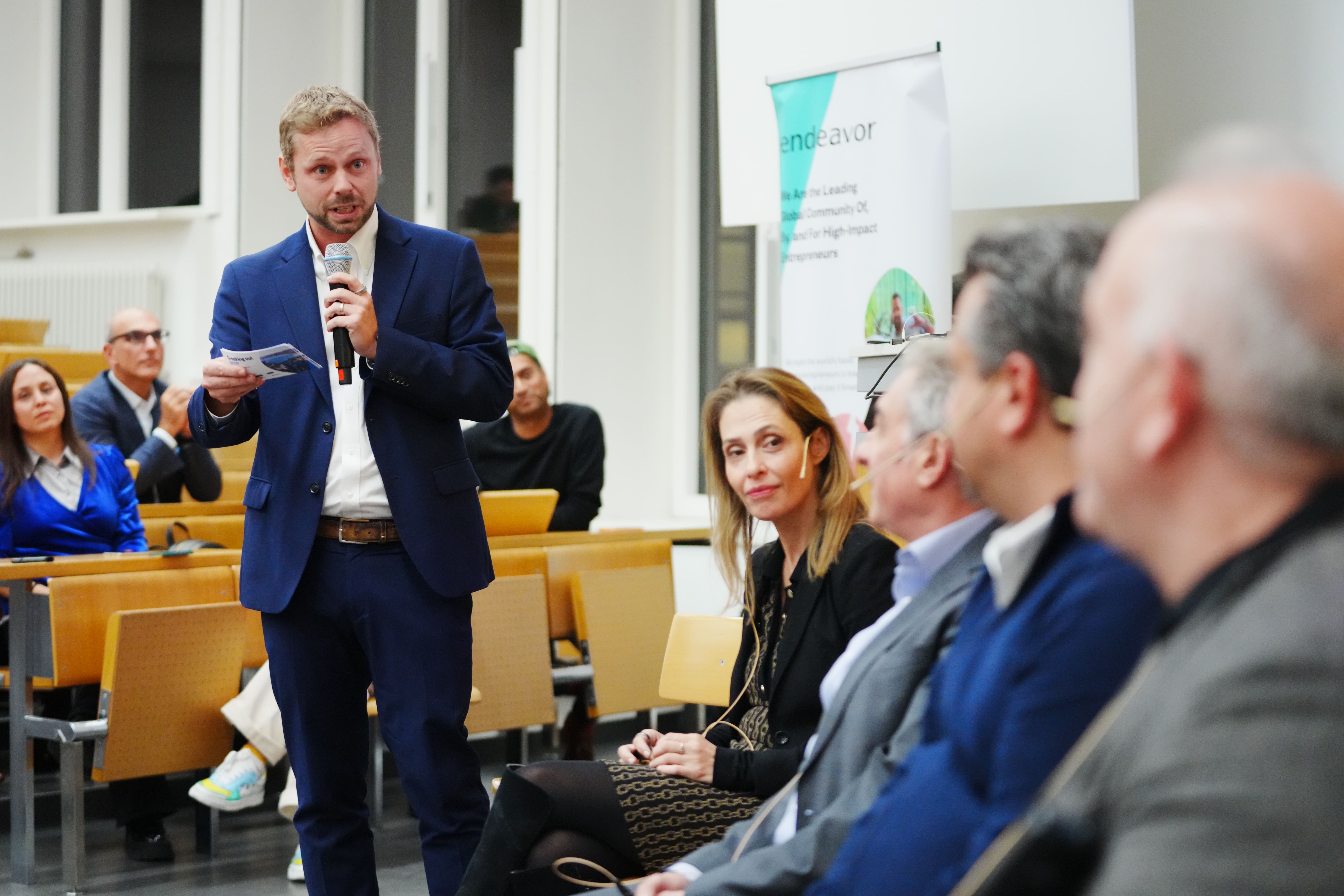AI, Science & Innovation: Driving the Next Wave of Tech Ecosystems
By Endeavor Greece Oct 9, 2025
As artificial intelligence continues to reshape industries across the world, what will define the next era of innovation - and how can Greece position itself at the forefront?
At Greeking Out in Zurich, a panel of thought leaders from academia, business, and policy explored this question from multiple perspectives. Moderated by Phil Norris (machineMD), the conversation featured Effy Vayena (ETH Zürich), Christos Cabolis (IMD), Manolis Dermitzakis (Qatar Precision Health Institute), and Dennis Martinis (ex-McKinsey & Co. Switzerland) - each offering insights into how technology, education, and governance can drive future readiness.
From Rankings to Realities: Greece’s Path to Competitiveness
Opening the discussion, Christos Cabolis outlined how Switzerland consistently ranks among the top in IMD’s Digital Competitiveness Index - a result of strong institutions, education, and collaboration between research, the public sector, and private enterprise.
By contrast, Greece, which hovers around the 50th position, still faces challenges such as bureaucracy and slow judicial processes. Yet, Cabolis highlighted that these obstacles coexist with promising trends: “Greece has the opportunity to produce talent - but at the same time, that talent often goes abroad. The question is how to bring it back and connect it to opportunity.”
He cited Greece’s pandemic-era success in digitalizing its vaccination rollout as proof of what can be achieved when urgency and alignment meet: “It wasn’t by accident - it was collaboration in action. The next step is to build that kind of infrastructure to last.”

A Government and Ecosystem in Motion
Dennis Martinis, recently appointed economic advisor to the Greek Prime Minister, emphasized the country’s significant progress in recent years. “Greece is now growing faster than the rest of Europe - and with a much healthier mix,” he noted.
He pointed to improved fiscal discipline, a surge in investment, and a renewed focus on technology and AI. “When we meet global investors,” he added, “they tell us Greece is one of the few countries in Europe that truly believes in European integration and the opportunities it brings.”
Yet, he acknowledged the challenges of implementation in a democratic and highly regulated environment. “The system works, but it demands consensus. What’s impressive is how much progress is happening within that framework.”
Education, Talent, and Lifelong Learning
As AI transforms industries, the foundation of competitiveness lies in education and talent. Effy Vayena, professor at ETH Zürich and a leading voice in digital health ethics, stressed that Greek universities are making progress but must scale faster.
“There’s movement, but it’s uneven,” she said. “We need to think beyond traditional degrees and invest in lifelong learning and reskilling. That’s what will prepare societies for the realities of AI - and ensure talent doesn’t just get trained, but stays.”
Cabolis agreed, adding that upskilling must extend beyond big corporations. “Greece has one of the highest ratios of small and medium enterprises in Europe. If AI is to enhance productivity, we must make it accessible to them - not just the few.”

From Science to Scale: Bridging Academia and Industry
Manolis Dermitzakis, geneticist and President of the Qatar Precision Health Institute, reflected on his own journey from academia to entrepreneurship. “We’re seeing growth in startups, but few are born from science and research,” he said.
To change that, Dermitzakis argued, Greece needs to invest in fundamental research and IP creation: “You can’t build a deep-tech economy without deep science. We need the material to transition ideas into startups.”
He pointed out the progress made through new university tech transfer offices but emphasized that culture must evolve, too: “We must teach scientists how to think like entrepreneurs - not just researchers.”
Effy Vayena added that even in advanced ecosystems like Switzerland, bridging that gap remains a challenge. “At ETH, we still struggle to support people who want to bring ideas to market. Greece has the chance to move faster - it doesn’t need to follow the same slow path we did.”
Building Trust and Changing the Narrative
Beyond infrastructure and investment, trust emerged as a central theme. Vayena warned against Europe’s growing “technophobia”:
“Across Europe, AI and digitalization are too often framed through fear. But for startups to thrive, consumers need to trust technology - and governments need to create that environment.”
Cabolis agreed, highlighting that progress depends on confidence in both institutions and innovation: “People must trust not only the technology but also that, if something goes wrong, the government will protect the citizen, not just the producer.”

Where AI Meets Opportunity
In their closing remarks, the panel identified key sectors where Greece can lead with AI:
Biotech & Healthtech, where data-driven insights can advance research and patient outcomes.
Pharma & Manufacturing, where AI can improve logistics, operations, and production - especially in generics.
Agritech & Energy, as emerging fields for data optimization and sustainability.
Tourism & Logistics, with predictive technologies enhancing efficiency and customer experience.
As Dermitzakis concluded, “Greece has the potential to build long-term infrastructure, not just task forces. It’s time to move from one-off successes to systems that last.”
About Greeking Out in Zurich
Hosted by Endeavor Greece in strategic partnership with The Hellenic Initiative, Greeking Out in Zurich was part of the Zurich AI Festival 2025, uniting founders, investors, and academics from across Europe to celebrate the rise of Greek innovation and its growing global footprint.